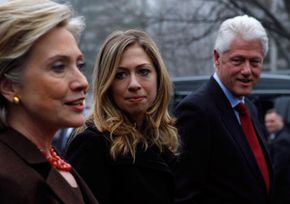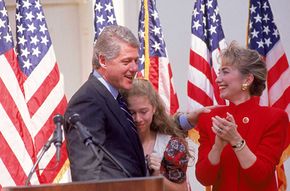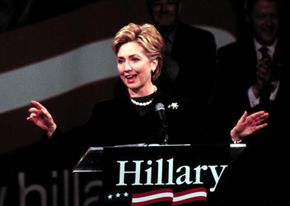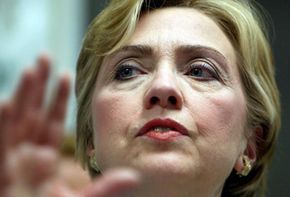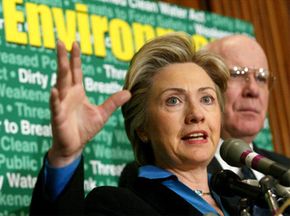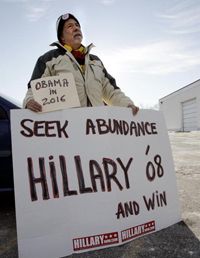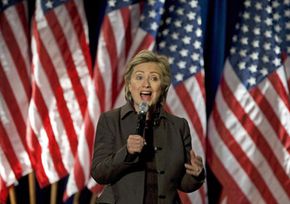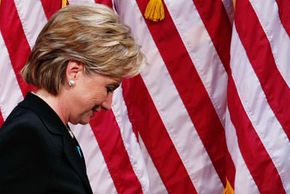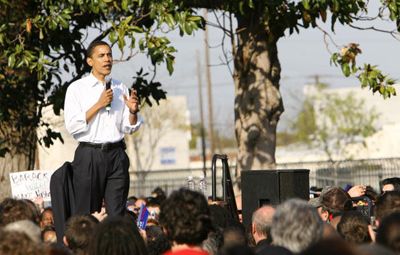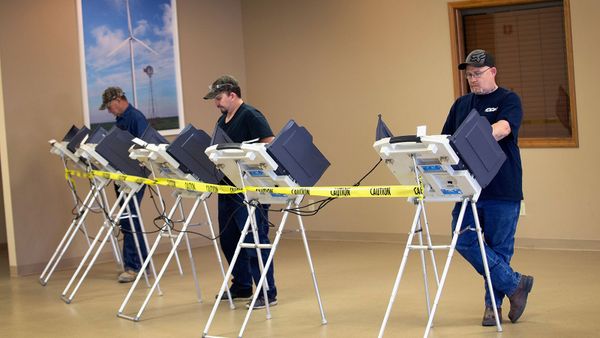Although she'd been a U.S. senator for just eight of her 60 years, by the time Hillary Clinton made a bid to become the first female president in the history of the United States, she was already an established political powerhouse. Hillary Clinton is a stalwart of the Democratic Party -- but her political beginnings are steeped in Republican activism.
As a child, she followed her father's example, becoming interested in Republican politics at a young age. She served as a "Goldwater Girl," a youth supporter of 1964 Republican Party presidential candidate Arizona Sen. Barry Goldwater. As an undergraduate at Wellesley College, she was the president of the campus Republican group [source: Hillary Clinton].
Advertisement
At Wellesley, Clinton's liberal views began to emerge, creating a dichotomy with her conservative views. "I'm a heart liberal, but a mind conservative," she wrote to a friend while in college [source: UC Berkeley].
Her position in the Democratic Party solidified quickly after she planted herself firmly in the left. In 1973, Clinton worked in the Southwestern United States for the Democratic National Committee (DNC), registering voters in the border states. It was a turning point for her political education: "We had a chance to go into people's homes," she told a crowd in El Paso 35 years later on the 2008 campaign trail. "We ate a lot of great food. We listened to some wonderful music. And we registered a few voters, too" [source: Washington Post].
Five years after her stint as a volunteer for the DNC, Clinton became the Democrat first lady of Arkansas.
It's impossible to tell the political story of Hillary Clinton without also describing her husband's political career; the two are inextricably linked. They are, as described by CNN, "the ultimate political power couple" [source: CNN].
Bill Clinton famously remarked during the 1992 presidential campaign that if the American people elected him, they would get "two for the price of one" [source: Washington Post]. As first lady, Clinton was a force to be reckoned with. A bumper sticker from the Clinton White House era told other motorists that the car's owner planned on "voting for Hillary's husband" [Los Angeles Times]. The term "Billary" was coined to describe their union [source: Urban Dictionary].
But in the 2008 presidential primary race, Clinton emerged from her husband's shadow. She cast herself as a veteran of Washington politics, "ready to lead from day one" [source: AP]. Her platform was built on strengthening the middle class, providing universal health care coverage for Americans, ending the Iraq War, reforming immigration and supporting women's rights.
The 2008 presidential primaries provided Clinton a field to display her political talents. Her campaign fundraising set records during the primaries and ultimately generated almost $230 million during the campaign [source: Open Secrets]. And she boasted the support of both her husband and her daughter, both of whom campaigned for her. "She's in the solution business, and she always has been," Bill Clinton told a crowd before the Wisconsin primary in February 2008. "She's the best at it and always has been" [source: WISN].
Find out about Clinton's voting record, her life, how she's viewed by special interest groups and her presidential platform. On the next page, we'll take a closer look at Clinton's life.
Advertisement
